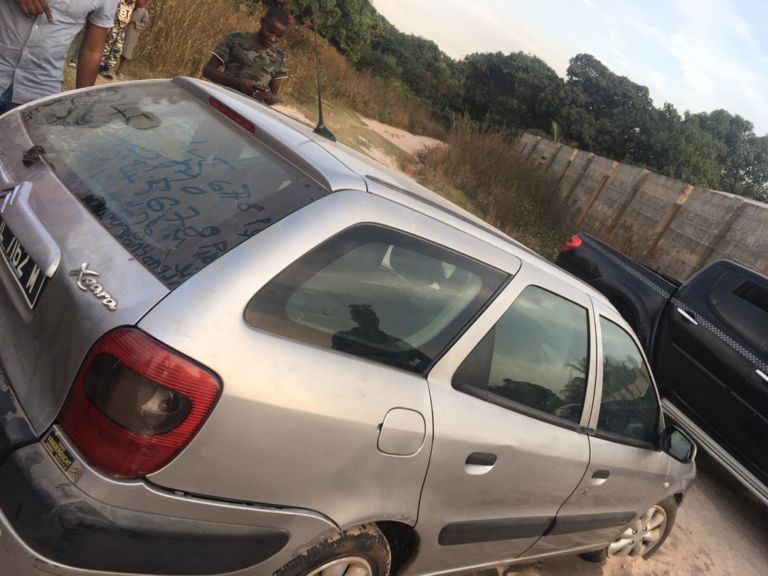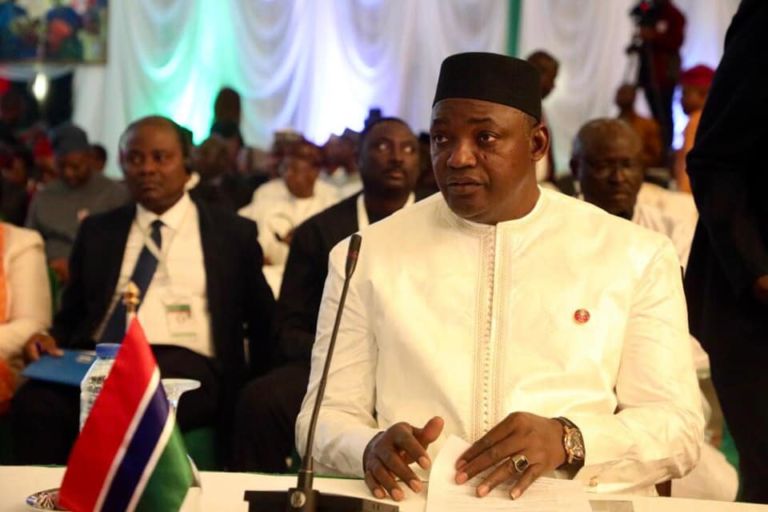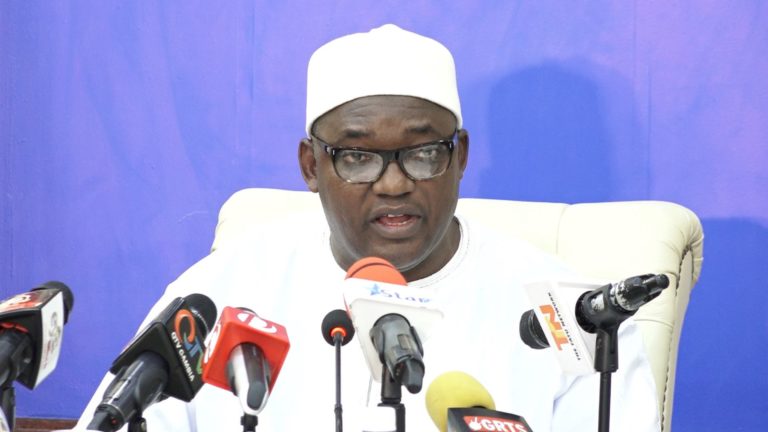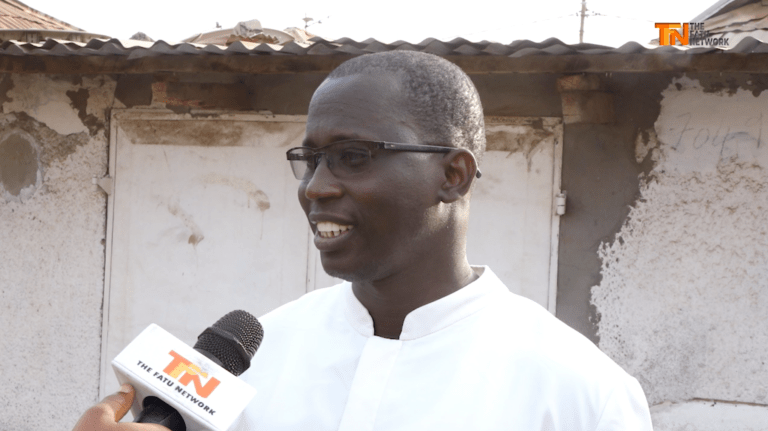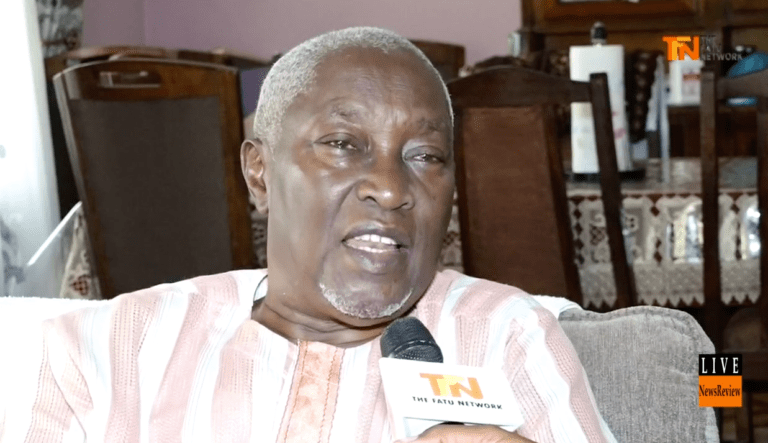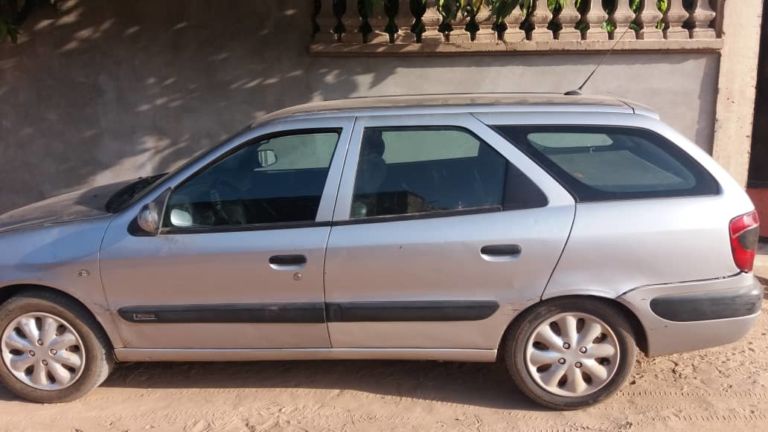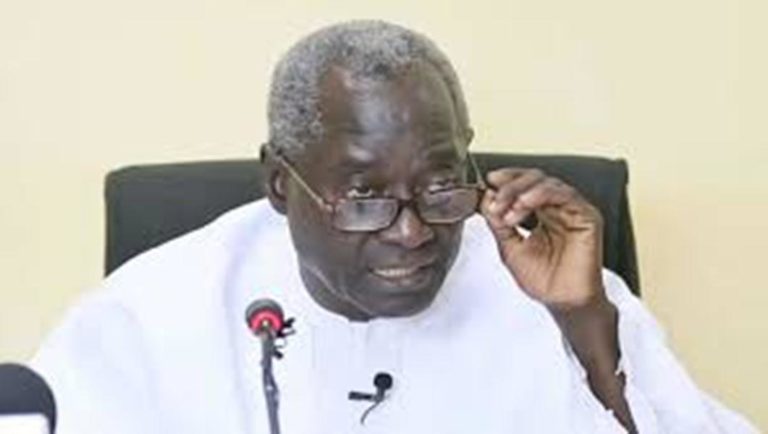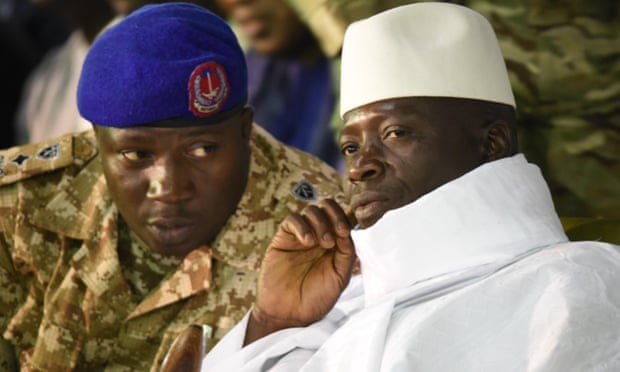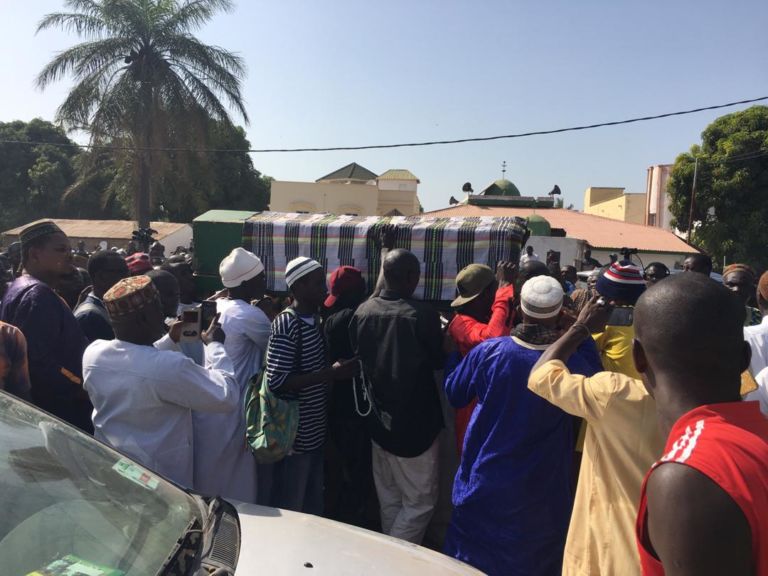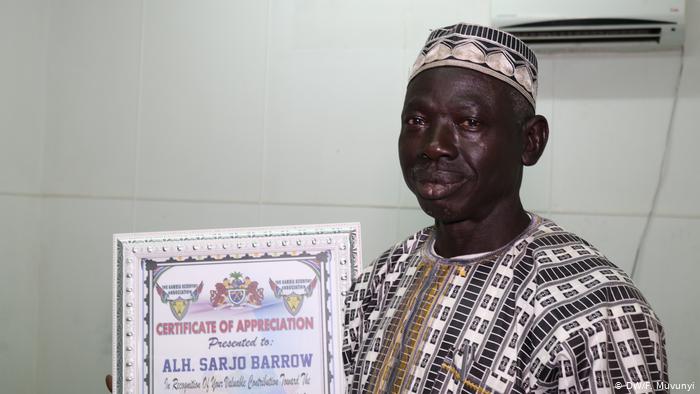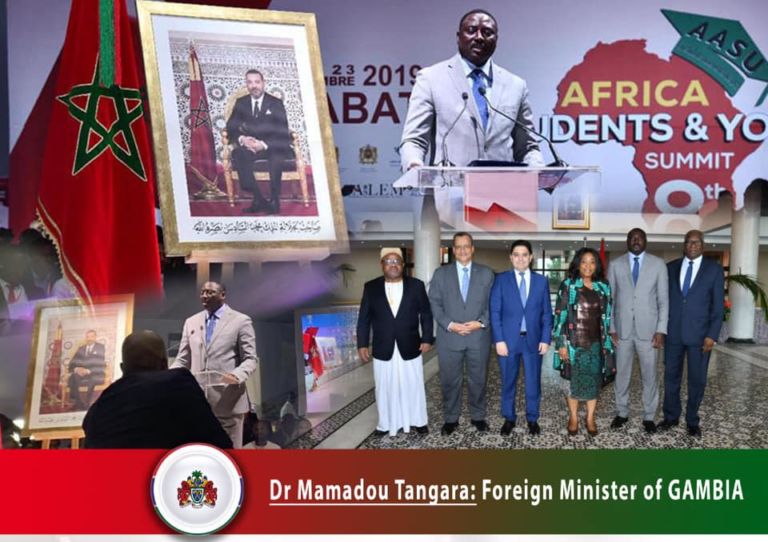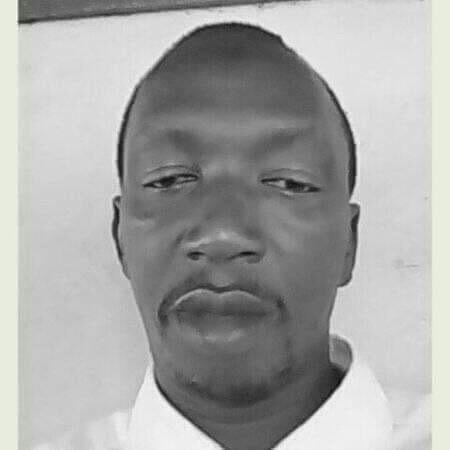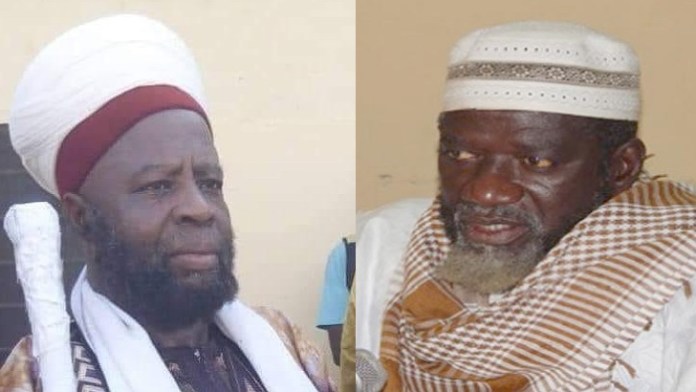I have never doubted the continued existence and the future of the Gambia until the issue of ‘secularity of the state’ emerged following the release of the draft constitution for public review. I have come to see the rise of extremism on both sides of our religious divide that is just scary, worrying and sad. I, therefore, strongly suggest that the CRC Chair convenes an in-house closed-door family consultation between the Supreme Islamic Council and the Gambia Christian Council to provide clarifications, assurances and bridge the gap harmoniously over this issue so they can better engage their congregations on the matter.
Having said that let me state that my position remains that we should have the word ‘secular’ in the constitution simply to further reinforce the secularity of the state as enshrined in both the 1970 and 1997 constitutions. Both constitutions uphold the freedom of religion and the 1997 Constitution went further to bar the National Assembly to make a law establishing a state religion. The Gambia cannot be a religious state. Therefore, to attempt to twist and confuse ‘secularity of the state’ as anti-Islam is a manipulation that some people are perpetuating with the notion that they are defending their religion.
Yes, majority of Gambians are Muslims, but this does not give Muslims anymore rights over the other less populous religions even on the principle of democracy. I have heard many people argue that democracy is ‘majority rule’ and therefore this should reflect the fact that Muslims are the majority in this country. Indeed, decisions in democracy rests on majority but it is not to the detriment of the minority. The fundamental values of democracy are equality, inclusion, participation and representation. Hence it is not merely about the majority riding roughshod over the minority. That would be dictatorship.
In that regard I have noticed a very concerning view from many significant quarters who call for an outright ‘Islamic Republic’ on the basis that Muslims form the majority in the Gambia. One person even suggested to me, in defence of the ‘Islamic Republic’ campaign, that if the Christians were the majority then it would also be right to declare the Gambia a ‘Christian Republic’. Such a view is essentially saying that it is okay for the majority to own and rule!
The trouble with this view is that it ignores and violates at the same time the sovereign equality of all citizens of the Gambia as per Section 1 of the 1997 Constitution. Regardless of which section of the population of the Gambia forms the majority or minority the fact remains all citizens are equal in rights and ownership of this country hence the Constitution and state of the Gambia cannot be based on one particular section. This is why even political parties are not formed on the basis of tribe, religion or region so as not exploit the majoritarian argument hence undermine democracy and sovereignty of citizens.
Otherwise if we go by that majoritarian argument, then should the Mandinka people also claim to be owners and rulers of this country? Should the women also say they own and should rule this country? Should the youth also claim they own and should rule this country? This is because all of these groups form the majority by their sheer numbers. This is why it is such a wrong view to conclude that democracy is all about majority rule.
There is also the misconception that ‘secularity of the state’ will undermine Islam and Muslims in the Gambia. On the contrary I wish to posit that in fact ‘secularity of the state’ will protect both Islam and Christianity and their believers equally. For that let me point some of the misconceptions and misinformation that are being peddled in opposition to ‘secularity of the state’.
In the first place there is reference made to France which banned the veil in 2004 that some people claim that in future it is possible that someone may also call for the banning of the hijab in the Gambia. Those who perpetuate this misinformation, deliberately or not, refuse to state the full facts about this French ban. In 2004 when the French Parliament voted to ban the veil, the ban was only limited to public schools. Furthermore, the French law also bans the explicit wearing of all religious materials such as the Jewish kippa (i.e. the small hat Jews place on the middle of the head) and large Christian crosses. Therefore, it was not only about the hijab.
The French law permits ordinary signs of faith to be displayed. In public hospitals, schools and other public places the law requires state employees to respect the principle of secularism by respecting people’s religious preferences. In fact, recently the French Government has resisted calls from far-right groups to ban Muslim women volunteers who help schools during excursions from wearing a headscarf. In fact, as recent as October 2019 the French President Macron was heard speaking strongly in support of the Muslim population against the racist narratives from the far-right racist groups. Therefore, to exploit the French veil ban in the discussion about secularity in the Gambia is a misconception and a misinformation.
But let us look at Muslim majority states where many countries have banned the veil (from the hijab to the burqa) in public places such as schools, universities, restaurants, parks or in offices as the case may be. These countries include Tunisia, Tajikistan, Chad, Turkey, Azerbaijan, Morocco, Gabon and Cameroon including some European and Asian countries. What is clear in these bans is that they either relate to security concerns or other distractions as well as racism in other cases. Again, these actions are not caused by secularism.
There is also the false narrative that secularism means the demolition of mosques in public places and the outright restriction on Muslims to worship as they wish. This is utterly false because such an action would constitute a violation of the principle of secularism and the freedom of religion. Secularism is where the state does not side with any religion against another. Rather the state protects the fundamental right to worship which includes protection of religious sites and activities. Therefore, a secular state cannot be seen to violate or destroy the right to religion. As we see in France, the ban on the open display of religious materials in schools was not limited to Islam alone but also affects Judaism and Christianity which are the biggest religions in that country.
There is also the false narrative that the Gambia was not a secular state and so why introduced it now. The fact is that the Gambia has always been a secular state since 1965 as stipulated in its various constitutions. For example, in the 1965 Constitution, the right to freedom of religion is guaranteed under Section 19; in the 1970 Constitution this right is guaranteed under Section 21 and in the 1997 Constitution the right is guaranteed in Section 25. Furthermore Section 100(2) of the 1997 Constitution bars the National Assembly from declaring a state religion. It is only in a secular republic that the right to freedom of religion is guaranteed. In the Saudi basic law (since Shari’ah and the Hadith are their constitution) there is no such freedom of religion because Islam has been declared the State religion for all!
Some have argued therefore what is the point of having ‘secular’ spelt out in the constitution since Muslims and Christians having lived together for ages in peace and harmony in this country. What we must recognise is that laws are made to regulate life and human activities within a society with focus not only on the present moment but also in view of the past and the future. In the past we have had a president who unilaterally declared a state religion. Even though one may state that Jammeh violated the constitution because the law-making power rests with the National Assembly and they did not participate in that declaration, however the 1997 Constitution did not also state that a president cannot make such a declaration, whether that declaration can be considered law or not. Therefore, effectively Jammeh may be said to have not violated the Constitution.
This one act by Jammeh highlights the weakness of the Constitution in building fences to prevent abuse of power. Hence it is therefore necessary to state upfront in the new constitution that the country is secular to further reinforce that tradition since Independence. Furthermore, it could be stated under the powers of the Executive that the President has no power or authority or function to make a declaration or issue an executive order for a state religion.
Some have argued this is still not necessary because we saw how Yaya Jammeh however violated many other safeguards in the Constitution therefore what is the point of putting in higher fences if another president could also violate them. Well, this is the very point why those fences must be put there so that we could point out with clarity which fences were broken and by who. Without those fences we cannot hold any president or person accountable for violating them. Hence putting up those fences enhances accountability as well as protection.
Some people have come up with the idea that because Islamic law protects minorities therefore by making the Gambia an Islamic Republic will protect non-Muslims equally. I find this argument equally untenable simply because Islam and Muslims do not own this country. Their majority does not in anyway give them any right or power to determine the manner of governance in the country. More fundamentally when you institute a Muslim law or Christian law for the entire society there is no doubt that such law will negatively impact on those who do not belong to that faith sooner or later. Hence a state based on religion can only work conveniently and safely for a society with 100% believers of that particular faith. The Gambia is multireligious hence no one faith can be the basis for governance.
Many others went into dictionaries to copy and paste meanings of secularity and therefore conclude that secularity is anti-religion and therefore will deny believers from performing their religions. Well the point is that the literal meaning of ‘secular’ in any dictionary is anything that is not connected with religion, i.e. secularity is about mundane things. Of course, it is a fact that religion is inherently not secular but spiritual. All religions, especially Islam and Christianity teach believers to shun the secular and mundane aspects of life but to seek Heaven or the Kingdom of God. But the State is not a human being. The State is not a believer of any faith. A secular state guarantees freedom of religion otherwise it is not secular at all.
The State is merely a set of institutions in which men and women work. Those men and women do have faith but when they go to work in a State institution they do not operate based on their beliefs or faiths. They operate based on a set of laws, policies, guidelines, regulations and tools and processes which are not based on any religion. But these laws, policies and tools do not violate one’s faith, rather they protect it. Therefore, if you wish to pray in the workplace you should have the right to have space to pray. This is why workplaces have mosques and chapels or prayer rooms to satisfy the right to worship by workers.
Secondly while religion is about the spiritual and secularity is about the earthly affairs of people, however the values that exist in secular laws and institutions can be found to be the same in religion. For example, the constitution and other laws condemn rape, stealing, lying under oath or misuse of public wealth just as it is in religion. However, acts of immorality and criminality do occur in every society, whether the law punishes it or not. Every week they cut off someone’s hand in Saudi Arabia for stealing yet stealing continues.
Hence the counter argument against secularity that it will promote homosexuality and same sex marriage are unconnected. There are multiple democratic and secular states that continue to ban homosexuality. Homosexuality is a matter of human rights and how much citizens are aware and appreciate rights in general within the wider context of political awareness. So long as that awareness is not there it means the acceptance of sexual orientation will be lacking hence homosexuality cannot be legalized.
However, it must be noted that what is moral or immoral in religion and culture and what is legal or illegal in law are sometimes not the same. For example, Islam prohibits drinking of alcohol and eating pork, while both Islam and Christianity forbid adultery and fornication as immoral acts but such practices are not illegal by law. Hence to put forward the moral argument in opposition to ‘secularity of the state’ would be untenable where there are different religions. After all the Gambia Government continues to receive financial and material support from states around the world among which some are secular such as UK or France, theocratic such as Saudi Arabia or Iran and atheistic such as China or Cuba. So far no one ever said we return all support from those secular and atheistic states!
Religion is a huge resource only if believers act on the precepts. It is meaningless to claim to be a Muslim or Christian and to pray fervently yet one is corrupt, unjust, unfair and you discriminate and commit all of the evils that one’s religion prohibits. Therefore, for me the biggest threaten to Islam and Christianity in the Gambia is not ‘secularity of the state’. Rather the biggest threat is the very believers themselves who violate the values and standards of their faiths. Given the level of injustice and corruption in our homes, communities and in the public and private sectors I have no doubts that majority of our men and women are not abiding by their religious precepts. Otherwise if we truly uphold the values and standards of Islam and Christianity in our words and deeds it is clear that we would have had a very wealthy, peaceful and just society. It was not long ago when we had a leader who committed al forms of crimes and evil yet he was strongly supported and embraced by Islamic religious leaders!
In our society today the incidence of abuse of the rule of law, embezzlement of public funds, failure to work diligently and efficiently and sexual harassment of girls and women are rampant. The mere incidence of poverty in itself is a manifestation of injustice and discrimination in our society. Who perpetuates these crimes and evils other than our citizens who claim to be Muslims and Christians? Therefore, whether we are secular or not secular if we cannot ensure justice, fairness, non-discrimination and uphold the rule of law and the rights of all then what is the value of religion in our lives even if we are secular or a theocracy?
I hope as citizens debate on the soul of our nation we will be able to identify the fundamental and important issues that will serve to value all lives, protect all human rights and ensure that there are adequate opportunities so that no Gambian lives in poverty, deprivation and discrimination because of one’s religion or tribe or sex or disability or other status. In this world there are many countries – some are secular, and some are theocratic – yet many have failed to secure safe and advanced life for their all of their citizens. I hope the Gambia could.
For the Gambia Our Homeland
……………………………………………..
Madi Jobarteh
Skype: madi.jobarteh
Twitter: @jobartehmadi
LinkedIn: Madi Jobarteh
Phone: +220 9995093

